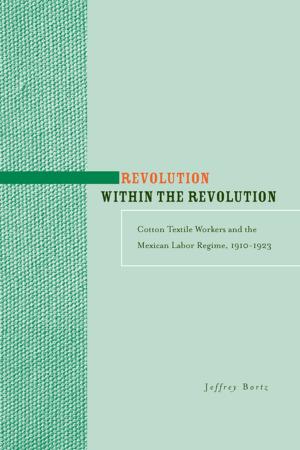Brazil's Steel City
Developmentalism, Strategic Power, and Industrial Relations in Volta Redonda, 1941-1964
Nonfiction, History, Americas, South America, Modern, 20th Century| Author: | Oliver Dinius | ISBN: | 9780804775809 |
| Publisher: | Stanford University Press | Publication: | October 1, 2010 |
| Imprint: | Stanford University Press | Language: | English |
| Author: | Oliver Dinius |
| ISBN: | 9780804775809 |
| Publisher: | Stanford University Press |
| Publication: | October 1, 2010 |
| Imprint: | Stanford University Press |
| Language: | English |
Brazil's Steel City presents a social history of the National Steel Company (CSN), Brazil's foremost state-owned company and largest industrial enterprise in the mid-twentieth century. It focuses on the role the steelworkers played in Brazil's social and economic development under the country's import substitution policies from the early 1940s to the 1964 military coup. Counter to prevalent interpretations of industrial labor in Latin America, where workers figure above all as victims of capitalist exploitation, Dinius shows that CSN workers held strategic power and used it to reshape the company's labor regime, extracting impressive wage gains and benefits. Dinius argues that these workers, and their peers in similarly strategic industries, had the power to undermine the state capitalist development model prevalent in the large economies of postwar Latin America.
Brazil's Steel City presents a social history of the National Steel Company (CSN), Brazil's foremost state-owned company and largest industrial enterprise in the mid-twentieth century. It focuses on the role the steelworkers played in Brazil's social and economic development under the country's import substitution policies from the early 1940s to the 1964 military coup. Counter to prevalent interpretations of industrial labor in Latin America, where workers figure above all as victims of capitalist exploitation, Dinius shows that CSN workers held strategic power and used it to reshape the company's labor regime, extracting impressive wage gains and benefits. Dinius argues that these workers, and their peers in similarly strategic industries, had the power to undermine the state capitalist development model prevalent in the large economies of postwar Latin America.















